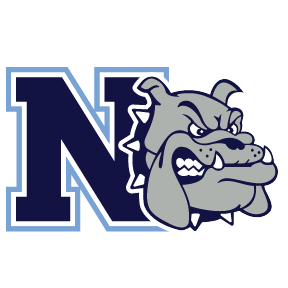NYSSA SCHOOL DISTRICT BOARD OPERATING AGREEMENT
PURPOSE: To enhance the teamwork among members of the board and between the board, we, the members of the Nyssa School District board do hereby publicly commit ourselves collectively and individually to the following operating agreement:
1. The board believes that any citizen who files and seeks election or appointment to the Board should do so with full knowledge of and appreciation for the investment in time, efforts and dedication expected of all Board members, and that the citizen’s intent is to serve a full term of office.
2. The board will give the community ample opportunity for their input during public comment at board meetings. We will be open minded and willing to deeply listen to all speakers/presenters. We agree that we can disagree and will do so using common courtesy and respect for others. We will not react to impromptu complaints on the spot but will follow public complaints policy/procedures and inform individual(s) about the public complaints rules/processes.
3. The board will review/revisit district priorities periodically and monitor the progress of the priorities
4. Don’t spring surprises on other board members or the superintendent. Surprises to the board or the superintendent will be the exception, not the rule. We agree to ask the board chair or the superintendent to plan an item on the agenda instead of bringing it up unexpectedly at the meeting.
5. Communication between staff and the board is encouraged as long as it follows board policy. The senior leadership team recognizes that “good,” “timely,” “open” and “constant” communication regarding school district issues is extremely important. We will strive to anticipate issues which may become important or are sensitive to our school district and district stakeholders.
6. Follow the chain of command. The last stop, not the first, will be the board. We agree to follow the chain of command and insist that others do so. While the board is eager to listen to its constituents and staff, each inquiry is to be referred to the person who can properly and expeditiously address the issue. Board requests that will likely require considerable time or have political implication are to be directed to the superintendent. All personnel complaints and criticism received by the board or its individual members will be directed to the superintendent.
7. Own the collective decision making process. The senior leadership team will support decisions made by the board and/or the administrative team once a decision is made. We will support the majority decision(s).
8. Exemplify the governance role. The leadership team (board and superintendent) will support the policies our district currently has in place. We will continue to annually study and review policies for effectiveness and appropriately engage key stakeholders in the development or deletion of policies and policy revisions. We will maintain and apply district policies consistently while being cognizant of and recognizing the potential uniqueness of any given situation.
9. Annually conduct a self-assessment/evaluation. The board will address its behavior by yearly self evaluation and by addressing itself to any individual problems, such as poor meeting attendance or disclosure of confidential information.
10. Clearly state goals. The board will set clear goals for itself and the superintendent. The board and superintendent will set clear goals for the district.
11. Utilize CEO input. The superintendent is the chief executive officer of the senior leadership team and should make recommendations, proposals or suggestions on most matters that come before the board.
12. Board acts only as a body. Individual board members do not have authority. Only the board as a whole has authority. We agree that an individual board member will not take unilateral action. The board chair will communicate the position(s) of the board on controversial issues. When the board members serve on various board committees, their role shall be defined by the board as silent observer or active participant.
13. Meeting protocol. Conduct at a board meeting is very important. We desire to have a legacy of a well-functioning, effective board. We agree to avoid words and actions that create a negative impression on an individual, the board or the district. We will be open-minded and willing to deeply listen to all speakers/presenters. We agree that we can disagree and will do so using common courtesy and respect for others. We will not react to impromptu complaints on the spot, but will assure any individual(s) that the school district will follow up.
14. Avoid marathon board meetings. To be efficient and effective, long board meetings should be avoided. Points should be made in as few words as possible; speeches at board meetings will be minimal. If a board member believes s/he doesn’t have enough information or has questions, either the superintendent or board chair is to be called before the meeting.
15. Practice efficient decision-making. Board meetings are for decision-making, action and votes, not endless discussion. We agree to move to the question when discussion is repetitive.
16. Speak to agenda issues. The board will not converse with the audience. We agree to speak to the issues on the agenda and attend to our fellow board members. Facts and information needed from the administration will be referred to the superintendent.
17. Executive/closed sessions will be held only for legally appropriate subjects. Executive sessions will be held only when specific needs arise. Board members will be extremely sensitive to the legal ramifications for their meetings and comments. 18. Children’s interests come first. The board will represent the needs and interests of all the children in our district.
